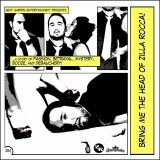If I could just reverse time, I would
 Photo by Xris Manteris The stalest trope in hip-hop criticism used to be the plight of the female MC. Why there weren't more, why they didn't get more attention, why they weren't better. It was trotted out in the early days of MC Lyte, Queen Latifah, and Salt 'N Pepa and revived for the bitch-hop heyday of Foxy Brown and Li'l Kim. But at this point, I'm almost starting to miss the cliché. There are so few woman rappers of note today that no one's even around to call attention to their absence. It's shocking and frankly kind of weird. If I were listing the ten best, I'd probably be forced to include that woman calling out "Papadonna" on Outkast's "Mamacita." The sad thing is that it's not just a matter of Title IX or anatomical equality. As I've noted before, women rappers, when they're not trying to outgun their male counterparts, do rap differently. They have largely different concerns and a different approach that hip-hop still rarely accommodates. Outside of, say, known softies like Lyrics Born or Common, swagger inherently outweighs sensitivity. More pressingly, because hip-hop's such a vital conduit of the young black experience, the narratives of its urban females are going underrepresented and unheard. I couldn't ask for a better example of its power than Jean Grae's new song, "My Story." It's a subject far outside of the typical rap tale that still engages the genre's traditions on its own terms. Taking on a favorite approach--the hardscrabble coming-of-age saga--Grae defuses the bravado and pride of street survival we've come to expect. Instead, her harrowing track is all about doubt and gnawing guilt, self-hatred and self-destruction. With painfully precise details of abortions and miscarriages, Grae doesn't glamorize anything about her rough choices. All this autobiography tries to do is explain why and ask for forgiveness. "And you don't know what it's like in waiting rooms," she says, before articulating the experience for us. "[O]utside, the picketing pictures can slay you/ They scream at victims and spittin' till they shame you/ I hold my head low and shiver, push my way through./ They put you in a room where you can change into/ Your gown and shower cap, shaking like a fiend would do." Grae applies that same bared-soul approach throughout, relaying her story so honestly it's hard to bear at moments. The part that gets me the most is this post-op observation: "And then you wake up in another room with plenty others/ They call it Recovery, you thinking, 'We ain't mothers.'" "My Story" is so raw that its chorus, a soggy Mary J. Blige-like hook, feels conventional and out of place. More in keeping with the song's themes are the stray moments when Grae's doubts even disrupt her flow. Contemplating what she'd do with a second chance, she tries to be definitively declare, "If I could just reverse time, I would." But absent of easy answers, she has to circle back and admit, "I don't know what I would do/ Honestly, it's not good." And even more disarming is the outro in which she just repeats, "I'm sorry. I'm sorry. I'm sorry" like her conscience finally breaking through. It's a sentiment you rarely hear in hip-hop, from a voice that reminds me how much we've been missing. * MP3: "My Story" - Jean Grae from Jeanius [Buy it] |





















Comments on "If I could just reverse time, I would"
-
 Anonymous said ... (9:39 AM) :
Anonymous said ... (9:39 AM) :
post a commentWow...this is easily the best song Jean's ever written. A truly heartbreaking story. Good post, my dude.